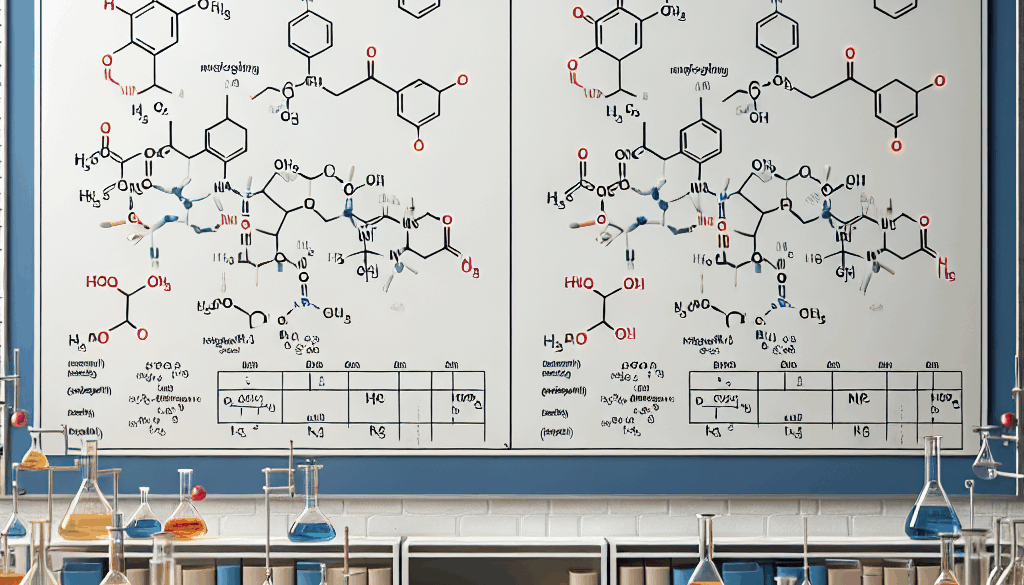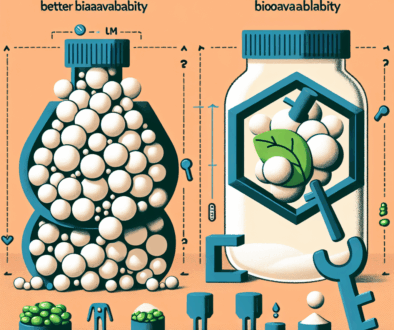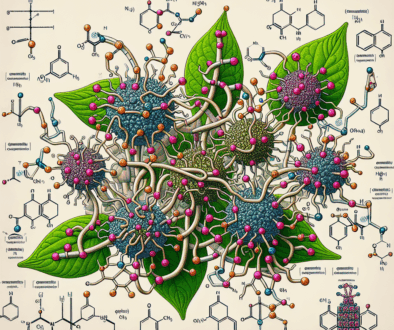α-Lipoic Acid vs R α-Lipoic Acid: Which Wins?
-
Table of Contents
- α-Lipoic Acid vs R α-Lipoic Acid: Which Wins in Nutritional Supplementation?
- Understanding α-Lipoic Acid (ALA)
- The Distinctive Nature of R α-Lipoic Acid (R-ALA)
- Comparative Analysis: ALA vs R-ALA
- 1. Bioavailability and Absorption
- 2. Antioxidant Capacity
- 3. Cost and Accessibility
- 4. Clinical Applications
- Which Should You Choose?
- Conclusion: Making an Informed Choice
- Explore ETprotein’s High-Quality Protein Products
α-Lipoic Acid vs R α-Lipoic Acid: Which Wins in Nutritional Supplementation?
α-Lipoic Acid (ALA) and its isomer R α-Lipoic Acid (R-ALA) are powerful antioxidants used in various health supplements. Understanding the differences between these two forms can help consumers make informed decisions about their supplementation choices. This article explores the distinctions, benefits, and applications of ALA and R-ALA, providing a clear comparison to determine which might be more beneficial for specific health goals.
Understanding α-Lipoic Acid (ALA)
α-Lipoic Acid is a naturally occurring compound that is vital for cellular energy production. It is both water and fat-soluble, which allows it to work in every cell or tissue in the body. As an antioxidant, ALA is known for its ability to regenerate other antioxidants such as vitamins C and E, and help the body reduce oxidative stress.
The Distinctive Nature of R α-Lipoic Acid (R-ALA)
R-ALA is the biologically active isomer of α-Lipoic Acid. This means that it is the form of ALA that is naturally synthesized by plants and animals and is more readily utilized by the body. R-ALA is often considered more potent than its synthetic counterpart ALA, which is a mixture of the R and S isomers.
Comparative Analysis: ALA vs R-ALA
1. Bioavailability and Absorption
- ALA: As a mixture of R and S isomers, the standard ALA supplements might not be fully absorbed by the body, leading to less efficiency.
- R-ALA: Being the naturally occurring form, R-ALA is more readily absorbed and utilized by the body, making it theoretically more potent and effective.
2. Antioxidant Capacity
- ALA: ALA is recognized for its ability to combat free radicals and help regenerate other essential antioxidants.
- R-ALA: R-ALA not only shares these antioxidant properties but does so more effectively due to its higher bioavailability.
3. Cost and Accessibility
- ALA: Generally less expensive and more widely available in various supplement forms.
- R-ALA: Typically more costly due to its higher potency and the more complex manufacturing process required to isolate this isomer.
4. Clinical Applications
- ALA: Used in the treatment of peripheral neuropathy, diabetes-related conditions, and as a general antioxidant.
- R-ALA: Preferred for more targeted therapeutic applications due to its enhanced biological activity, including more effective management of blood sugar levels and improved nerve health.
Which Should You Choose?
Choosing between ALA and R-ALA largely depends on your health objectives and budget. For general antioxidant support, ALA may suffice. However, for those seeking more potent effects, particularly in managing specific health conditions like diabetes or neuropathy, R-ALA could be the better option despite its higher cost.
Conclusion: Making an Informed Choice
In the comparison of α-Lipoic Acid vs R α-Lipoic Acid, R-ALA often emerges as the more potent option due to its higher bioavailability and effectiveness in clinical applications. However, the choice between ALA and R-ALA should be based on individual health needs, budget, and desired outcomes. Consulting with a healthcare provider can also help tailor your choice to your specific health conditions and goals.
Explore ETprotein’s High-Quality Protein Products
For those interested in enhancing their health regimen, ETprotein offers a range of superior protein products. Their extensive lineup includes organic and allergen-free options, perfect for various dietary needs and health objectives. Consider incorporating ETprotein’s products into your diet for optimal health and wellness.
ETprotein is α-lipoic acid Factory Manufacturer and Supplier in China, Check further information by visiting the α-lipoic acid Product Page
Request Quotation and Samples of α-lipoic acid from ETprotein
About ETprotein
ETprotein, a reputable protein and elite nutrition ingredients α-lipoic acid Chinese factory manufacturer and supplier, is renowned for producing, stocking, exporting, and delivering the highest quality organic bulk vegan proteins and elite nutritional ingredients α-lipoic acid. They include Organic rice protein, clear rice protein, pea protein, clear pea protein, watermelon seed protein, pumpkin seed protein, sunflower seed protein, mung bean protein, peanut protein. Their offerings, characterized by a neutral taste, non-GMO, allergen-free attributes, cater to a diverse range of industries. They serve nutraceutical, pharmaceutical, cosmeceutical, veterinary, as well as food and beverage finished product distributors, traders, and manufacturers across Europe, USA, Canada, Australia, Thailand, Japan, Korea, Brazil, and Chile, among others.
ETprotein specialization includes exporting and delivering tailor-made protein powder and finished nutritional supplements. Their extensive product range covers sectors like Food and Beverage, Sports Nutrition, Weight Management, Dietary Supplements, Health and Wellness Products, and Infant Formula, ensuring comprehensive solutions to meet all your protein needs.
As a trusted company by leading global food and beverage brands and Fortune 500 companies, ETprotein reinforces China’s reputation in the global arena. For more information or to sample their products, please contact them and email sales(at)ETprotein.com today.












